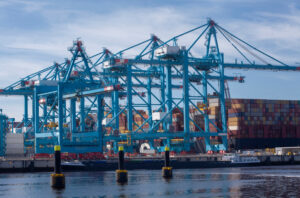According to data from Sea-Intelligence, vessel schedule reliability remains very low but has seen a slight improvement in February 2022.
As published in its latest Global Liner Performance report, global schedule reliability in February improved by 4.0 percentage points month-on-month (M/M), reaching 34.4 per cent.
This marks the first significant improvement since March 2021.
Schedule reliability previously dropped to an all-time low in January 2022 – coming in at 30.9 per cent.
The average delay for late vessel arrivals also improved M/M, decreasing to 7.11 days in February 2022. Delays have been over seven days since August 2021.
A.P. Moller – Maersk (Maersk) remained the most reliable top-14 carrier, as it was in December 2021 and January 2022.
According to Sea-Intelligence, the shipping line had a scheduled reliability of 47.8 per cent, closely followed by Hamburg Süd with 42.4 per cent.
CMA CGM, and ZIM both had schedule reliability between 30 and 40 per cent.
Eight of the top-14 carriers had schedule reliability between 20 and 30 per cent.
Wan Hai was the least reliable carrier in February, with a schedule reliability of 18.7 per cent – the only one below 20 per cent.












